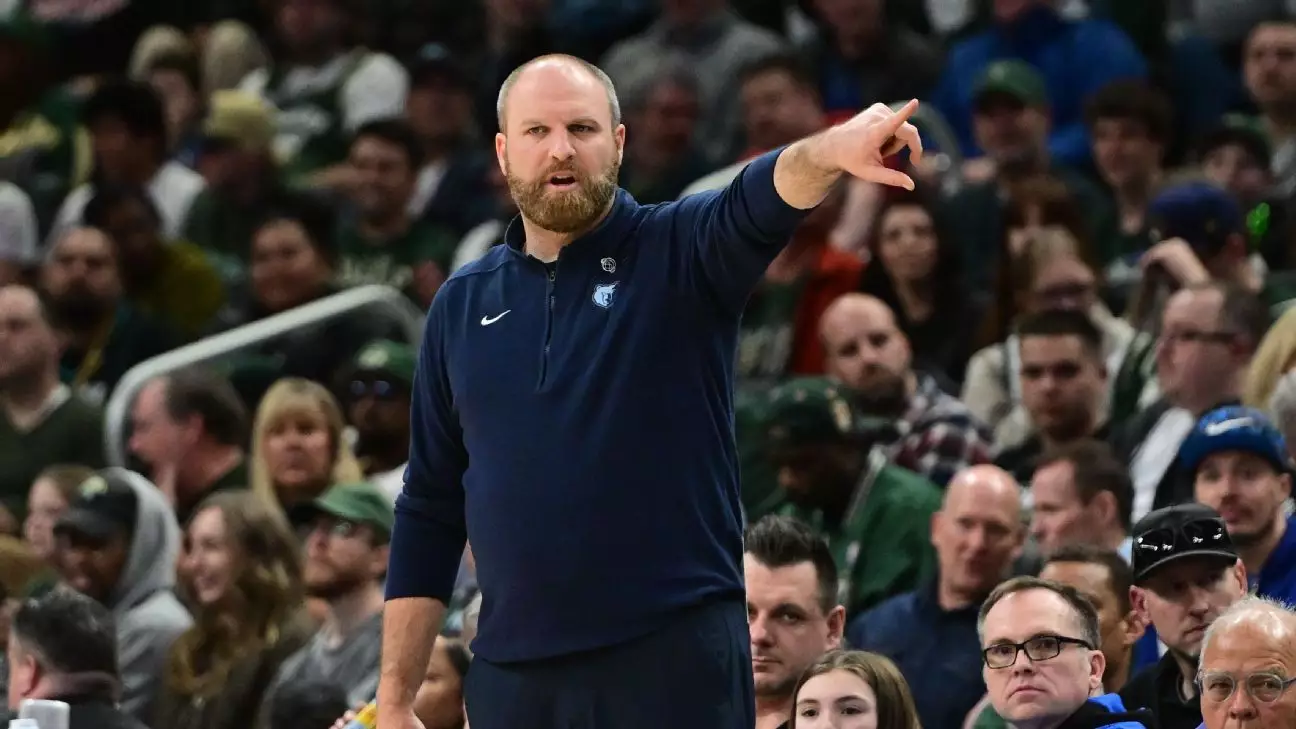On a day that reverberated across the sports world, the Memphis Grizzlies made the shocking decision to part ways with Taylor Jenkins, their most successful head coach to date. The timing of the firing is significant, coming right as the team was grappling with critical late-season performances that jeopardized their playoff positioning. It speaks volumes about the pressure executive management faces as the stakes rise—after all, in sports, winning is often reduced to a binary outcome: victory or defeat. The Grizzlies’ general manager, Zach Kleiman, expressed gratitude for Jenkins’ contributions, yet it’s evident that the team’s current trajectory and recent decline triggered this transformative action.
A Stellar Yet Troubling Tenure
Jenkins’ tenure as coach began with promise in the 2019-2020 season, coinciding with the emergence of Ja Morant, who quickly became a cornerstone for the franchise. With Jenkins at the helm, Memphis clinched three playoff appearances, including one pivotal series victory. This record is a commendable achievement, especially for a relatively young coach. However, it becomes bittersweet against the backdrop of the more troubling aspects of this concluding season, where Memphis sputtered offensively and was plagued by injuries. The team’s performance post-All-Star break, featuring an underwhelming 8-11 record and consecutive losses, positioned them precariously in the playoff race, highlighting the inconsistency that led to Jenkins’ dismissal.
The Metrics Behind the Decision
Analyzing the statistics, Jenkins boasts a 250-214 record, making him the franchise’s winningest coach. Yet, perhaps that number doesn’t portray the complete narrative of success. Much of that winning came against teams with losing records, which raises questions about the Grizzlies’ actual competitiveness against more formidable challengers. With a staggering 11-20 record against teams currently over .500, Memphis’ vulnerabilities became glaringly apparent. This disparity in performance against high-tier competition likely raised red flags for the front office, shining a light on the need for immediate improvements.
Moreover, Jenkins’ inability to adjust the game plan or devise effective offensive strategies allowed the team’s turnover problems to flourish. With the significant investments made in player acquisitions and drafting, the Grizzlies needed a strategic guide capable of maximizing talent while addressing recurring issues—something that rapidly fell off in the late season.
The Road Ahead
What arrives after Jenkins? The Grizzlies face a challenge of immense proportions—finding a successor capable of not just maintaining Jenkins’ successes but reinvigorating a lineup that is clearly equipped for more. In a league that increasingly values offensive creativity and defensive resilience, the Grizzlies’ upcoming head coach must possess a vision that caters to existing talents while fostering a dynamic environment within the locker room.
This transition comes at a critical time, as the franchise is intertwined with the daunting task of navigating the playoff landscape against a slew of contending teams vying for championship aspiration. Without an interim coach announced and the clock ticking, the Grizzlies must find a way to rally the squad amidst the uncertainty—all while facing their next opponent, the Los Angeles Lakers, in what could be a defining moment that sets the tone for the playoffs.
Future Implications and Ownership’s Expectations
As the Grizzlies turn the page, there are implications that extend beyond just the immediate coaching void. The decision to let go of a coach like Jenkins, who had contributed so much over six seasons, indicates the hefty expectations ownership has for the franchise’s future. The stakes are undeniably high; Memphis is a city hungry for basketball accolades, and in today’s fast-paced sports environment, mediocrity is not an option.
In a league forecasted for change, where narratives shift rapidly and teams oscillate in standings, the question now looms: will the Grizzlies emerge from this crossroads stronger and more agile, or will this directional shift impede their growth? Only time will tell how well they navigate these uncharted waters as they seek to reinvent themselves under new leadership while pursuing their championship aspirations.


Leave a Reply